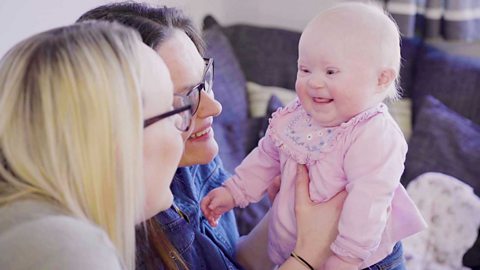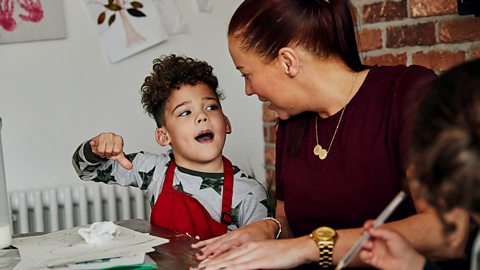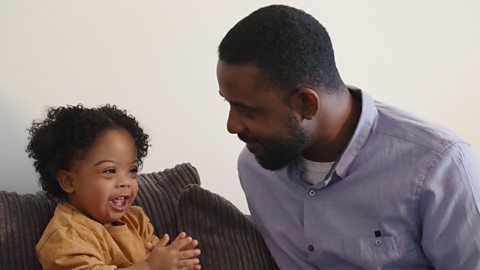Itãs been a whirlwind couple of years for former EastEnders actor Rose Ayling-Ellis. The first deaf contestant to appear on Strictly Come Dancing, she went on to win the 2021 competition as well as the hearts and minds of audiences. Since then, sheãs been nominated for an Olivier Award for her performance in Shakespeareãs As You Like It in London's West End, as well as making her new ôÕÑ¿èÓ One documentary Rose Ayling-Ellis: Signs for Change.
We caught up with Rose to talk about her hopes for deaf children learning sign language and how her mum helped her learn to sign as a child.
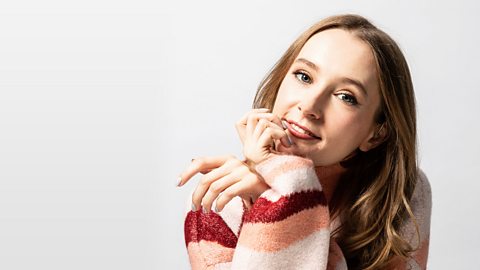
Changing the story about deafness
Roseãs Strictly appearance has helped to raise awareness of what life is like for deaf people in the UK. However, sheãs wary of being held up as an inspiration without prompting further discussion around the issues deaf people come up against. In the documentary, she presents a challenge to the view of signing as being inferior to speaking.
ãI think there is such a lack of awareness about the challenges deaf people face when learning sign language. A lot of parents, when they find out their child is deaf, the first people they meet are doctors and they are given medical advice. But they canãt really give advice on life. And when theyãre asked if children should learn sign language, a lot will say not to, because it will make them less likely to learn to speak. And that is an old, old belief that comes from Victorian times and hasnãt been updated. I think the reason I can speak is because I learnt sign language.ã
Rose is on a mission to change the story when it comes to deafness and signing, starting with the way we speak about children born deaf.
Iãve always been seen for what I canãt do rather than what I can do, since the day I was born.
ãThe doctor would come up to my parents and say ãIãm really sorry but sheãs got a significant hearing lossã. They would use language like ãshe has failed the hearing testã. So Iãd ãlostã something and Iãd ãfailedã something. And that set me up for the rest of my life. And itãs been up to me to prove to people that being deaf is not a loss and itãs not a failure.ã
The importance of signing
In the documentary, Rose talks how important it was for her to sign throughout her appearance on Strictly. ãI thought ãIãm just going to be myself, Iãm going to sign as much as I can, just to show Iãm deaf.ã Suddenly the focus was on what I could do and not what I couldnãt do.ã During her and Giovanniãs ãcoupleãs choiceã dance, the music fell silent in a moment that went on to define her time on the show. ãThe message I wanted to come across is that thereãs nothing wrong with being deaf and to show how joyful it is to be deaf,ã says Rose.
Rose began learning British Sign Language from 18 months old when her mum Donna found out she was deaf. She says this has been vital for her ability to communicate. ãFrom 0-3 years old, you need to have a language in your brain. It doesnãt matter what language it is. And a lot of deaf children struggle with learning to lip-read, it is a really hard skill. Learning sign language is often easier for them.ã
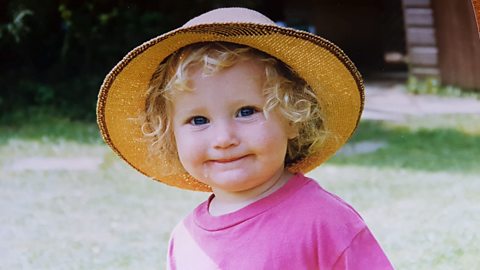
Much like children in other bilingual households, research suggests that learning sign language from birth can help children find it easier to learn spoken English. Not only that, but Rose sees sign language as a major factor that's helped her form her identity. Through meeting other deaf people, she learnt more and more BSL and became a part of a community. ãI remember growing up, not being able to fully speak and not being able to fully sign, so I was often left out. And that has become part of my life, Iãve always known the feeling of being left out and not knowing whatãs going on. We always want to meet people that are similar to us and we want to belong somewhere. And if you take that away, you never feel 100% hearing and you never feel 100% deaf.ã
Sign language helps me feel 100% deaf and that I belong somewhere.
In an ideal world, Rose would love for more hearing people to learn basic signs and enable a more inclusive society. ãThereãs a problem at the moment where a lot of people think thereãs no point in learning BSL because so few people know it. But if hearing children learnt the basics of signing, then people would start to see the benefit.ã She says that there are many situations in which learning to sign could be beneficial to hearing people. ãMany times, Iãve seen friends struggling to communicate with one another through a window and one of them has ended up having to come in to chat. What a waste of time! If they could just sign - boom, done! With my deaf friends, I could have a conversation about politics in the middle of a dancefloor in a club if I wanted. The only downside to others knowing BSL is that anyone can watch your conversation from miles away! You canãt whisper!ã
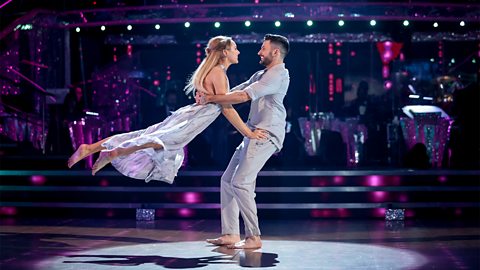
The role of parents
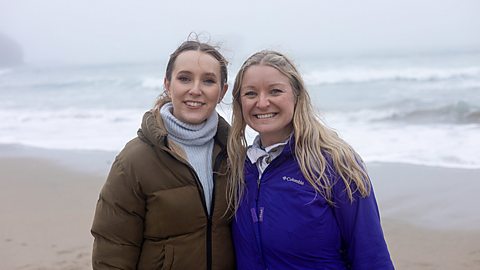
When it comes to children learning to sign, hearing parents like Donna are often learning at the same time, which can add an extra layer of difficulty to helping their children learn to communicate. ãObviously, my mum did try her best and she tried to teach me. But she was learning in the 90s ã there was no online learning,ã Rose tells us. And money was a significant barrier. ãI think she wished that she could sign a lot more, but she couldnãt afford to learn more. There are different levels to BSL and they each cost a lot of money, so she couldnãt afford to take classes beyond levels one and two.ã
The costs of learning to sign can still make things difficult for parents across the UK. Some local authorities and charities offer financial support or classes for families to learn BSL, although this is often only to a basic level. Rose wants to see this change, with less reliance on technology to help deaf children and more emphasis on signing. For her, itãs all about having a full toolkit for communication. ãI want people to stop assuming that cochlear implants and hearing aids solve everything. Because yes, they give people some hearing, but itãs not 100%. Theyãre very good when youãre in a quiet room. But life isnãt a quiet room - itãs classrooms, itãs outside with the wind blowingãÎ itãs very loud. Itãs about giving people all the tools to be able to adapt to whatever environment theyãre in. I can speak, I can lip-read, I can write, I can draw pictures if I have to, I can sign and Iãve got my hearing aid.ã
If parents can afford to learn to sign with their child, Rose is clear about the benefits.
Once you learn, it stays with you forever and you will see how beautiful and amazing it is that youãre able to communicate with your child.
ãBy learning to sign, youãre giving so much love to them because youãre meeting them halfway rather than them doing all the work.ã

Dealing with parent guilt
In the documentary, Donna questions whether she made the right choices when Rose was little, not knowing how hard it was for her daughter living in a hearing world. 90% of deaf children in the UK are born to hearing parents and few have extensive contact with the deaf community before their children are born. ãMy parentsã idea of what a deaf person is changed as I was growing up,ã says Rose.
I was proving to my parents what I could do. Theyãd never met any deaf person until I was born. The first deaf person they ever metãÎ their baby! That must have been quite overwhelming for both of them.
ãNeither of my parents got any support, so they were left to just muddle along and work it out for themselves. And thatãs really, really hard. But itãs hard being a parent. All parents carry that guilt, that worry about whether theyãre doing the right thing. They got more of that, but they did really well. I mean, I havenãt done too badly! Iãm proud of them.ã
More information
Emma Fraser from The National Deaf Childrenãs Society gives her advice on communicating with deaf babies and children here.
Organisations that can help families affected by deafness are listed by ôÕÑ¿èÓ Action Line.
Rose Ayling-Ellis: Signs For Change is available to watch on demand now on ôÕÑ¿èÓ iPlayer.

